Insights
New Research: King County Housing Perspectives Evolve with COVID-19
As the Seattle region cautiously emerges from nearly two years of COVID-19, we find ourselves facing many of the same challenges as before it all started. Lack of supply means housing costs remain high and local government’s approach to helping people experiencing homelessness continues to be a source of frustration. Yet, there are two important differences from December 2019—the earth-moving shift to remote work and the ongoing trend of people leaving their jobs to seek new opportunities.
For workers with an ability to work remotely, COVID presented an opportunity to relocate without sacrificing the job opportunity that drew them to the Seattle area in the first place. And more broadly, COVID spurred many workers to reflect on their current employment, leading many to change careers, start their own business or simply press pause and catch a breath. This so-called Great Resignation, combined with employer adoption of remote work policies, could accelerate an era of mobility— both in to and out of the Seattle area. How will remote workers impact the market for housing? Quinn Thomas and DHM Research conducted a survey of King County residents to find out.
Over 50% of King County residents are likely to move
Since January 2020, 25% of current Seattle area residents have moved. Of those, 17% moved from one part of King County to another and 8% moved into King County from outside the region. Downtown Seattle saw the biggest loss with a net out-migration of 13%. Close-in neighborhoods like Ballard and West Seattle experienced a net gain of 5% and the suburbs experienced a net gain of 8%.
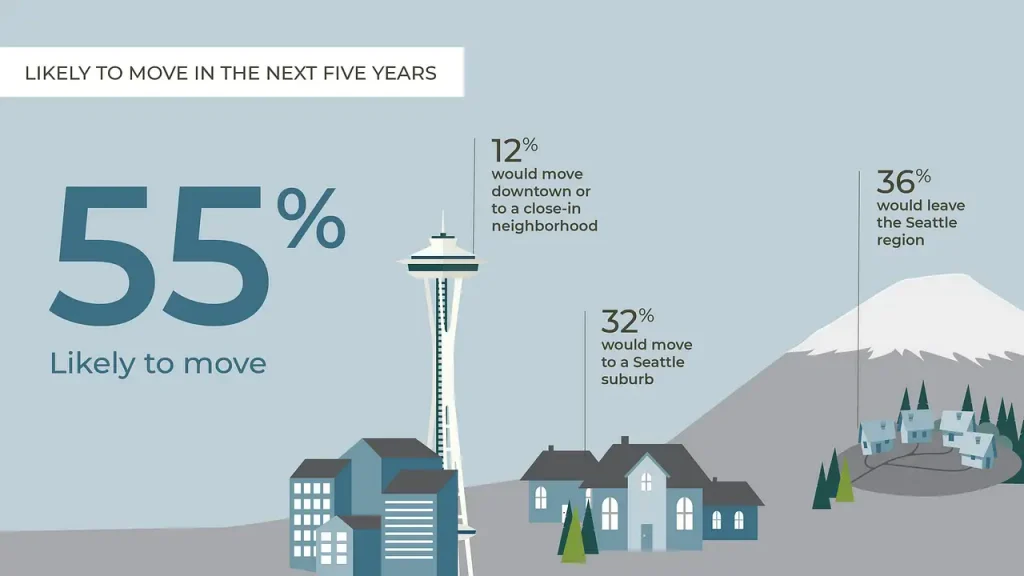
Most King County residents – 55% – say they’re likely to move in the next five years. Among those expecting to move, 44% think it’s most likely that they will stay in the Seattle area compared to 36% who expect to move outside the area, and 21% who are unsure where they’ll end up.
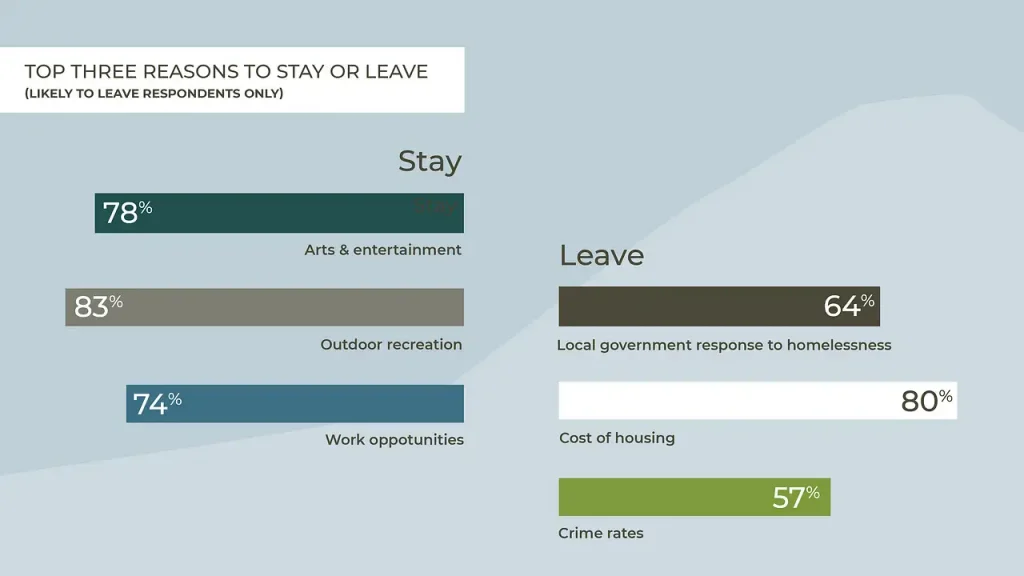
60% of King County residents prefer the suburbs
King County residents’ mobility leads to questions about housing preferences, particularly if there is an out-migration from the downtown core. While people are generally satisfied with their current neighborhood (45% very satisfied), slightly more than a third of current King County residents (36%) would prefer to live in another part of the region.
An urban living experience in Seattle remains an attractive option for many. But the dream of “a new home in the ‘burbs” endures – 60% of King County residents prefer to live in the suburbs, much higher than those who would select downtown or a close-in neighborhood (33%). While broad support for home ownership is no surprise, residents’ willingness to spend more for an ideal home out of the city reveals their family budget priorities. Of those who say they’re likely to move in the next five years, nearly half (45%) would sacrifice spending money on activities they enjoy if it meant they could have their ideal home.
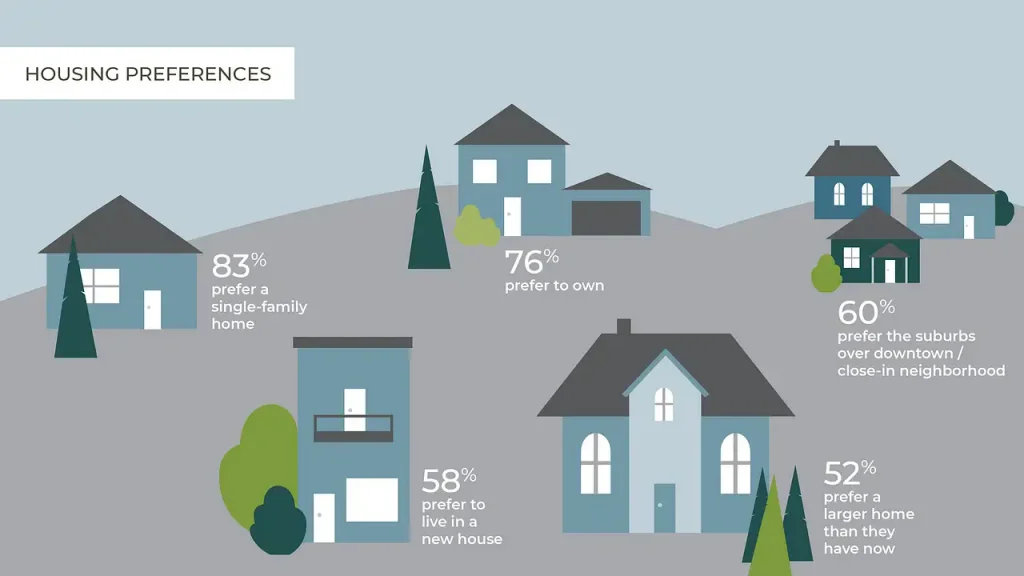
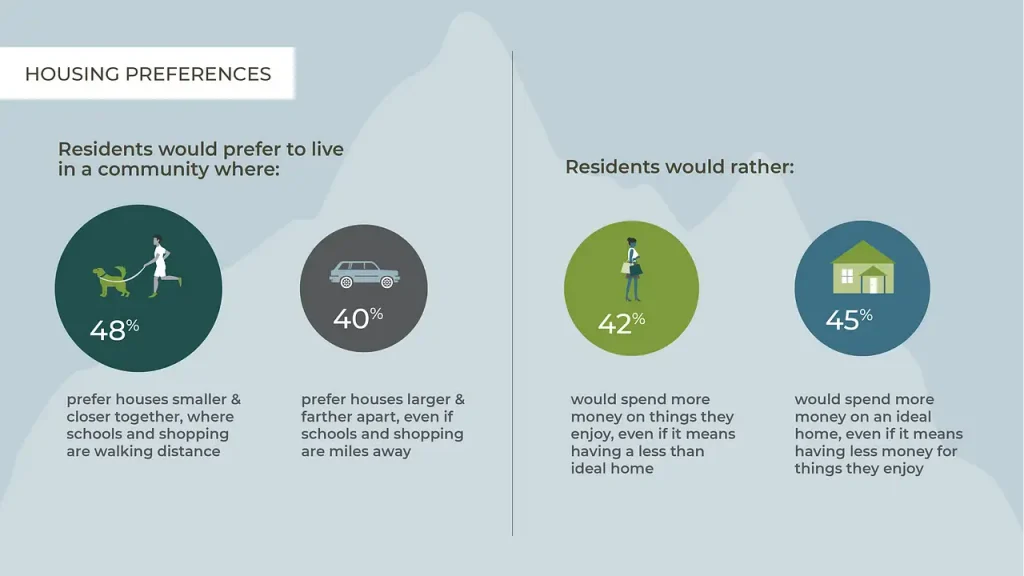
The top places for those who are itching to move to another area in the community include close-in neighborhoods such as West Seattle (9%), North Seattle (6%), Bellevue (6%) and downtown (6%).
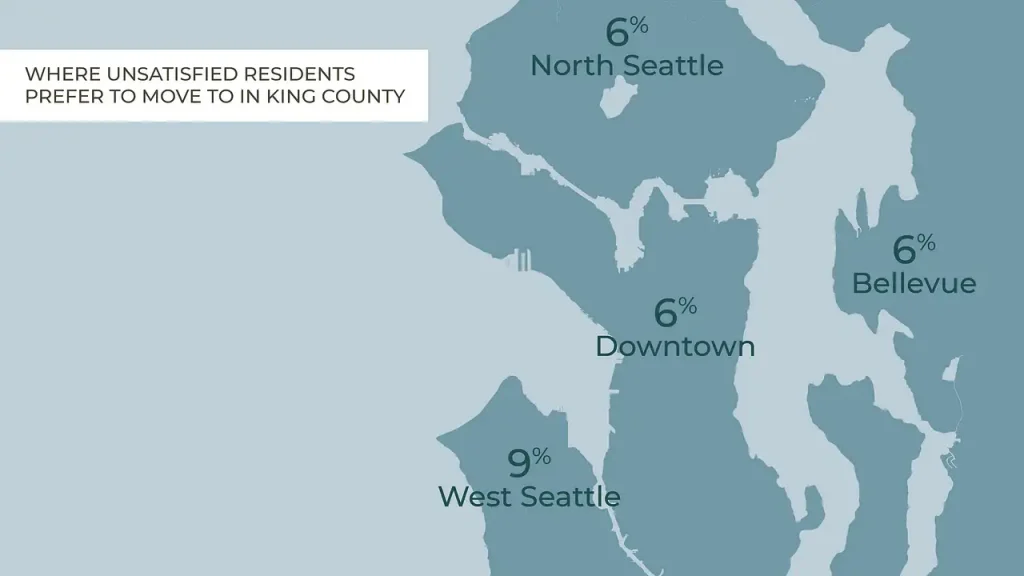
COVID also made aspects of King County residents’ lives more important. They are prioritizing neighborhoods with less crime and fewer people experiencing homelessness where they can work from home. As businesses enact permanent policies to allow remote work, we may see the out-migration of residents from downtown and close-in neighborhoods continue.
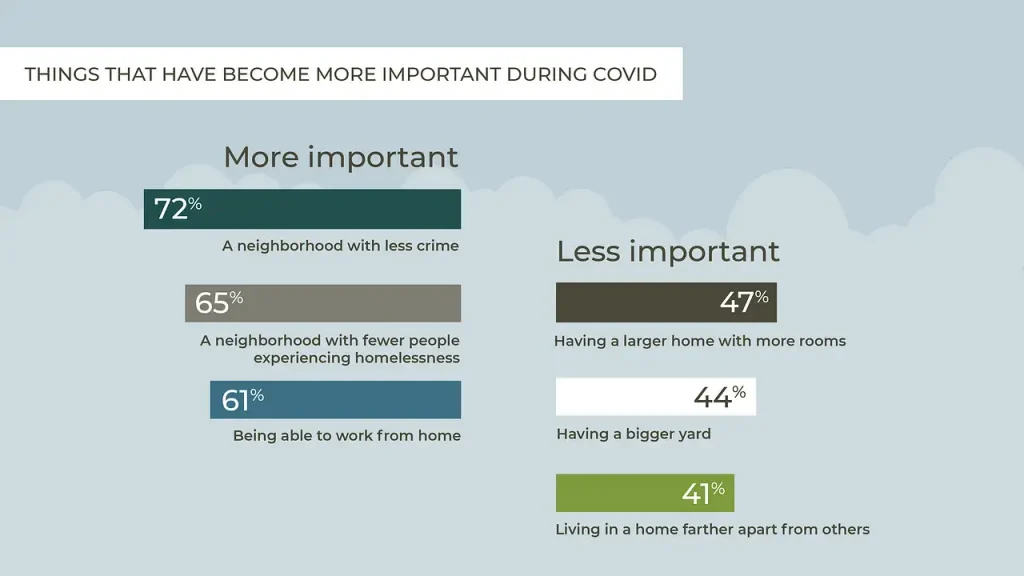
About 40% of COVID-related housing needs were met
As the public health response to COVID-19 took hold in the spring and summer of 2020, the federal government engineered an unprecedented investment to safeguard individuals, businesses and local governments. This included efforts to support households struggling to meet rent, mortgage or utility bills.
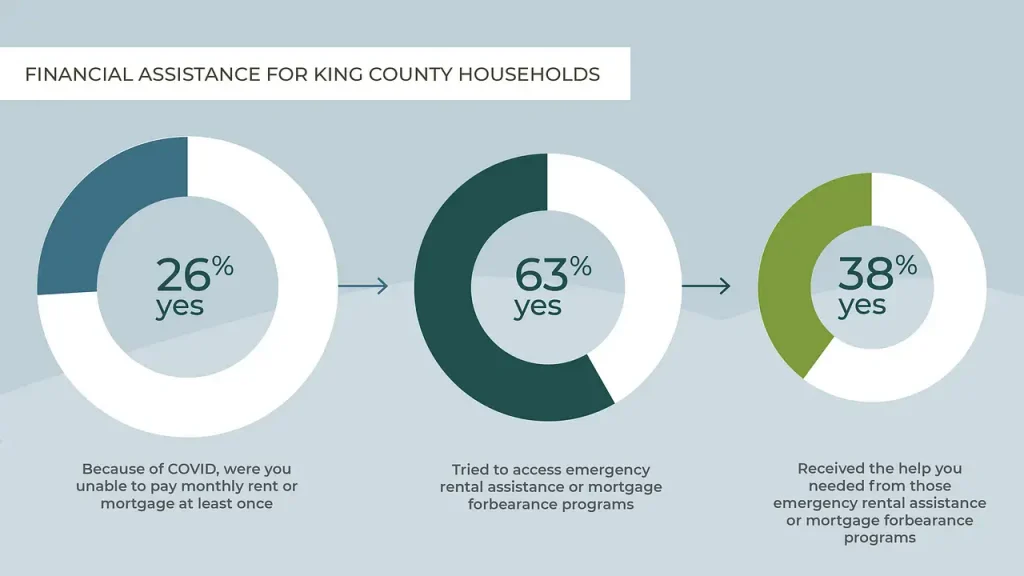
As one might expect, the need for rent or mortgage assistance skewed heavily toward younger residents (34% of 18-34 year olds), lower-income families (36% of households under $50,000 in annual income), and people with less formal education (39% of people with a high school education or less). Yet accessing the funds was not guaranteed. Of those who couldn’t make a rent or mortgage payment and applied for assistance, only 38% successfully received help.
Over 50% of King County residents support increasing housing density
King County’s housing supply and demand imbalance leads to questions about possible solutions. While many ideas have been offered in recent years – some more serious than others – a majority of residents support developing multifamily housing in areas that are currently zoned for single family use (55% in Seattle; 51% in Seattle’s suburban communities) and building housing on underdeveloped land (64%).
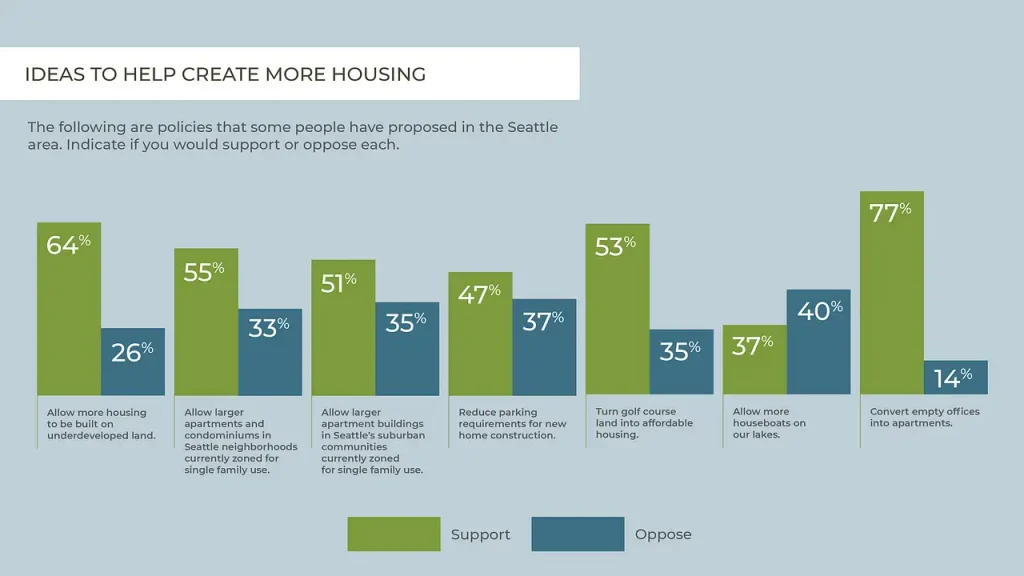
However, while King County residents generally support creating more housing, a plurality of them (41%) are under the impression that building more homes increases the cost of housing. As policymakers work to help clear the way for more housing creation, they will also need to contend with misperceptions around housing supply and cost.
Methodology
The survey consisted of 501 adult residents of King County and was conducted October 15 – 26, 2021. Respondents were members of a professionally maintained online panel and were invited to the survey via email. A variety of quality control measures were employed, including questionnaire pre-testing and validation. A combination of quotas and weighting by age, gender, race, education and area match the demographic makeup of the county. The margin of error for this survey is ±4.4%.
Report authored by Zach Knowling, Quinn Thomas & John Horvick, DHM Research
About Quinn Thomas
Quinn Thomas is an award-winning marketing communications and brand strategy agency founded in 2009. The agency is committed to thorough, audience-focused research and using it as the foundation for approaching every new communications challenge. The agency has offices in Seattle and Portland and has extensive experience in higher education, healthcare, energy and real estate.
About DHM Research
DHM Research has been providing opinion research and consultation throughout the Pacific Northwest and other regions of the United States for over 40 years. The firm is nonpartisan and independent and specializes in research projects to support public policy making.
